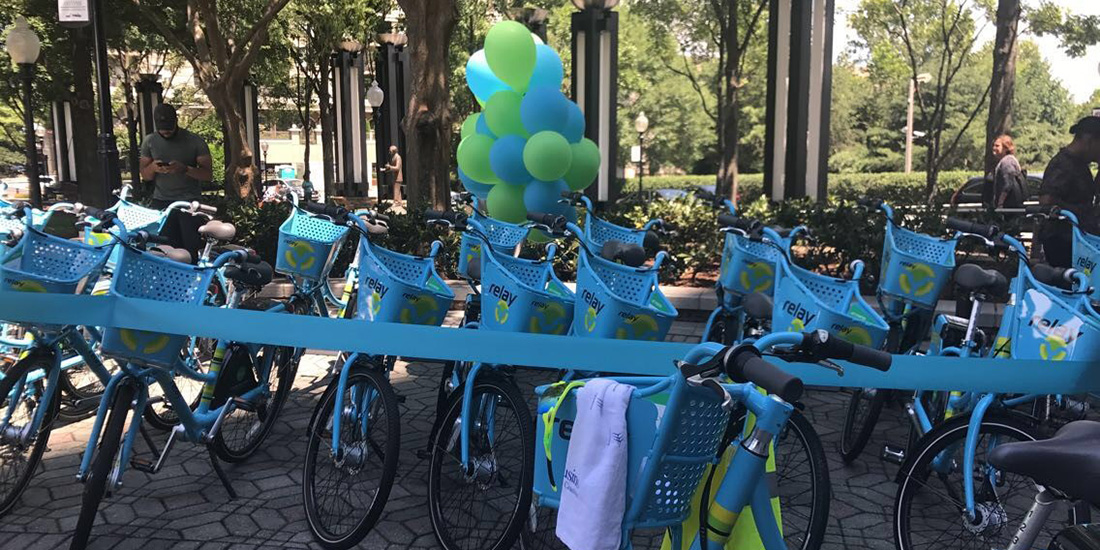Relay Bike Share moved into Atlanta last summer. There were about 100 bright blue bikes around town to choose from and 10 rental stations.
Now, there are 500 of them at more than 70 bike rental stations around the city.
Timberley Jones, Relay’s director of community outreach, said there’s been a change in Atlanta’s attitude toward bikes.
“It’s just about letting more people see bikes in different areas of the city, and letting cars know that we are allowed to navigate these same roads,” Jones said.
2016 was the first year Atlanta ranked as one of Bicycling Magazine’s top 50 bike-friendly cities. It came in at number 43.
Rebecca Serna, executive director of the Atlanta Bike Coalition, said she wants Atlanta to do better.
“It’s not just people [who] want bike lanes versus people who don’t,” she said. “It’s about prioritizing safety when it comes to how we design our streets.”
Atlanta has a few bike lanes with obvious barriers that are supposed to keep vehicles out while other lanes simply have a bike painted on the pavement as a suggestion for bikes to stay there.
But the city is working on a new design called a “Complete Street.” These are streets designed to be safe for everyone, including bicyclists. They are part of a $250 million plan that will renovate major streets in Atlanta.
Serna said the new design will give bikes a chance to loosen the gridlock associated with Atlanta’s known traffic problem.
“You’re able to essentially opt out of traffic,” she said. “In some parts of the city a bike can actually be a faster way to get somewhere if it’s congested.”
Bike lanes are now a mainstay in traffic plan conversations.
John Orr, manager of transportation with the Atlanta Regional Commission, said there needs to be a range of options in dealing with traffic because there isn’t one solution that is right for everyone.
“It really does require the whole toolbox,” Orr said. “Some communities need improved sidewalks or bicycle lanes.”
Orr said there is a plan for a lot more bike lanes in the future. The lanes would connect communities and people to public transit. And maybe, that would help boost Atlanta’s ranking as a bike-friendly city.
Atlanta voters are preparing to elect a new mayor and replace nearly half the City Council. In this moment of transition, WABE is exploring “The Future of Atlanta.”









